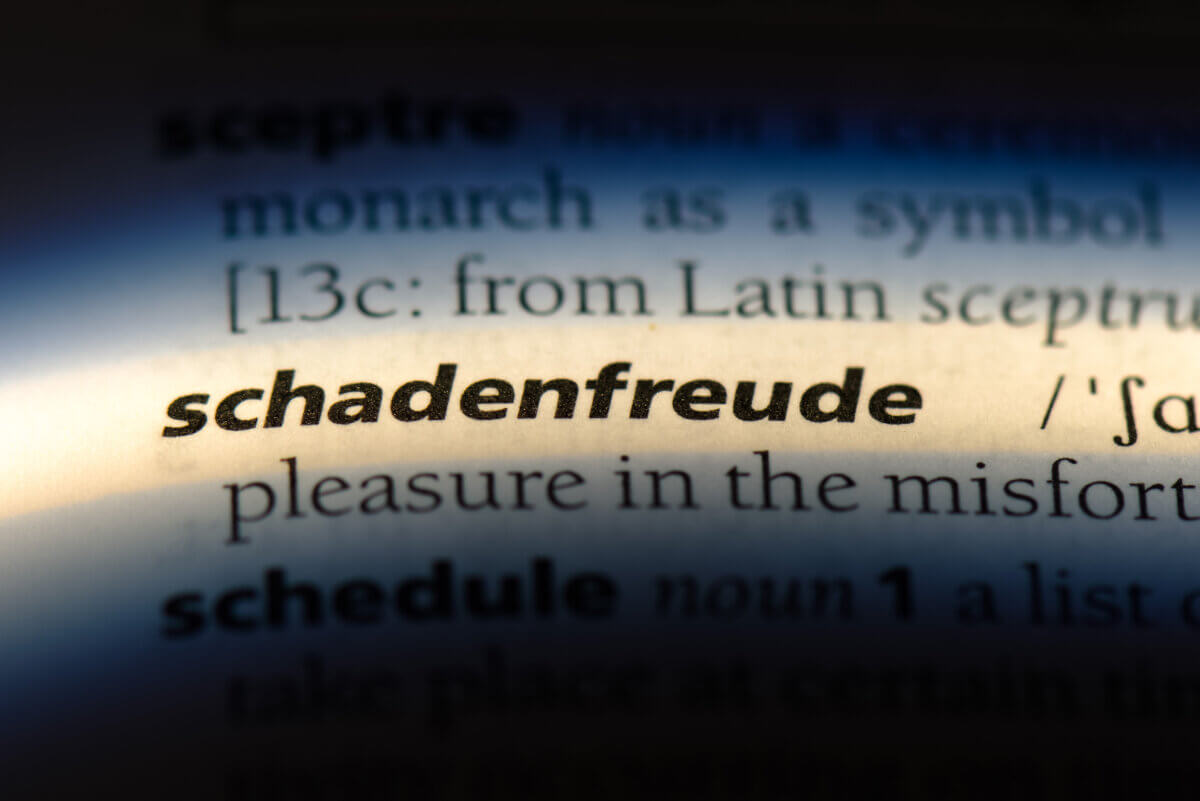
(Credit: Casimiro PT/Shutterstock)
Have you ever felt a tiny spark of joy when someone you're not too fond of experiences a minor setback? Don't worry, you're not alone. There's actually a word for that feeling: schadenfreude. It's a German term that translates to “malicious pleasure,” and it turns out this very human emotion could actually be a powerful tool for good.
A fascinating study published in the Journal of Consumer Psychology explores the world of schadenfreude and its potential to open wallets for good causes. Led by Thomas Kramer, a marketing professor and associate dean at UC Riverside's School of Business, the research team set out to understand how this complex emotion could be harnessed in the competitive world of charitable fundraising.
Kramer and his colleagues conducted a series of clever experiments to explore how schadenfreude works in fundraising scenarios. They asked hundreds of participants to imagine various situations where they could donate money to see someone they disliked experience a minor misfortune. The results were eye-opening and could change the way charities approach their fundraising strategies.
The Sweet Spot of Schadenfreude
One of the study's most crucial findings is that moderation is key to schadenfreude-based fundraising.
“If a disliked person gets more than their just desserts, and they’re severely punished, you no longer feel happy about that punishment, and donations go down,” explains Kramer in a university release.
In other words, people are willing to donate to see someone they don't like experience a mild inconvenience, but they draw the line at anything too severe. The study also found that participants were more likely to donate when imagining celebrities they disliked getting doused with a bucket of ice water compared to the idea of those same celebrities being shocked with a taser gun.
This aligns with our general sense of fairness and empathy. While we might chuckle at the thought of an annoying co-worker getting a pie in the face, most of us wouldn't want to see them seriously hurt. The research suggests that the most effective schadenfreude-based fundraising events should focus on harmless, mildly embarrassing situations – think dunk tanks at a carnival or playful pranks rather than anything painful or humiliating.
The Psychology Behind the Donation
Kramer's study uncovered some interesting psychological factors that influence how much people are willing to donate in these scenarios:
- Personal involvement: Whether donors get to inflict the mild misfortune themselves or simply watch it happen doesn't seem to make a big difference in donation amounts. This suggests that satisfaction comes from seeing justice served rather than personally dishing it out.
- Dislike and deservingness: For schadenfreude to work its fundraising magic, donors need to feel that the person experiencing the misfortune both deserves it and is someone they dislike. The stronger these feelings, the more likely people are to open their wallets.
- The right level of punishment: As mentioned earlier, the misfortune needs to be mild. When participants imagined scenarios where the punishment was too severe, their willingness to donate actually decreased.
How Would This Work in the Real World?
While the idea of using schadenfreude for fundraising might seem a bit mischievous, it's important to remember the bigger picture. The charitable sector in the United States alone raises a staggering $485 billion annually. Finding innovative ways to encourage donations could make a huge difference for countless worthy causes.
Imagine a charity event where local celebrities or public figures volunteer to sit in a dunk tank. Community members could donate for a chance to dunk someone they might not be particularly fond of – maybe a rival sports team's coach or a politician from an opposing party. As long as the event is done in good spirits and for a great cause, it could be a win-win situation.
The key is to keep things lighthearted and fun. Kramer's research shows that people are willing to indulge in a little schadenfreude for a good cause, but they don't want to cross ethical lines or cause real harm.
A Reflection of Human Nature
This study sheds light on a fascinating aspect of human psychology. While we might like to think of ourselves as purely altruistic beings, the reality is that our motivations for giving are often complex. Sometimes, a little playful mischief can be the spark that ignites our generosity.
It's worth noting that schadenfreude-based fundraising isn't meant to replace traditional appeals to empathy and compassion. Instead, researchers say it offers charities another tool in their arsenal, one that taps into a different part of human nature.










